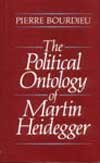
-
 Anglický jazyk
Anglický jazyk
Causal inference
Autor: Source: Wikipedia
Source: Wikipedia. Pages: 46. Chapters: Causality, Confounding, Correlation does not imply causation, Covariation model, Difference in differences, Experiment, External validity, Field experiment, Ignorability, Inductive reasoning, Internal validity, Principal... Viac o knihe
Na objednávku
17.19 €
bežná cena: 19.10 €
O knihe
Source: Wikipedia. Pages: 46. Chapters: Causality, Confounding, Correlation does not imply causation, Covariation model, Difference in differences, Experiment, External validity, Field experiment, Ignorability, Inductive reasoning, Internal validity, Principal stratification, Probabilistic causation, Propensity score matching, Qualitative comparative analysis, Randomized controlled trial, Random assignment, Rubin causal model, Selection bias, Simpson's paradox. Excerpt: A randomized controlled trial (RCT) (or randomized comparative trial) is a specific type of scientific experiment, and the gold standard for a clinical trial. RCT are often used to test the efficacy and/or effectiveness of various types of medical intervention within a patient population. RCT may also provide an opportunity to gather useful information about adverse effects, such as drug reactions. The key distinguishing feature of the usual RCT is that study subjects, after assessment of eligibility and recruitment, but before the intervention to be studied begins, are randomly allocated to receive one or other of the alternative treatments under study. Random allocation in real trials is complex, but conceptually, the process is like tossing a coin. After randomization, the two (or more) groups of subjects are followed in exactly the same way, and the only differences between the care they receive, for example, in terms of procedures, tests, outpatient visits, follow-up calls etc. should be those intrinsic to the treatments being compared. The most important advantage of proper randomization is that it minimizes allocation bias, balancing both known and unknown prognostic factors, in the assignment of treatments." The terms "RCT" and randomized trial are often used synonymously, but some authors distinguish between "RCTs" which compare treatment groups with control groups not receiving treatment (as in a placebo-controlled study), and "randomized trials" which can compare multiple treatment groups with each other. RCTs are sometimes known as randomized control trials. RCTs are also called randomized clinical trials or randomized controlled clinical trials when they concern clinical research; however, RCTs are also employed in other research areas, including many of the social sciences, where their relevance and the advantages claimed for them have been contested in the literature. Randomized experiments first appeared in psychology, where they were introduced by C
- Vydavateľstvo: Books LLC, Reference Series
- Rok vydania: 2014
- Formát: Paperback
- Rozmer: 246 x 189 mm
- Jazyk: Anglický jazyk
- ISBN: 9781233148196









 Ruský jazyk
Ruský jazyk 


